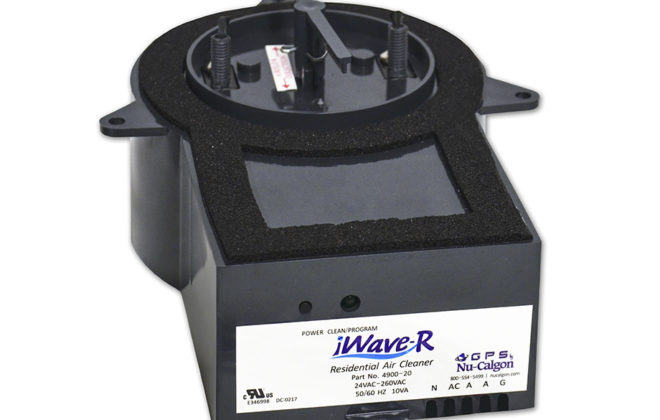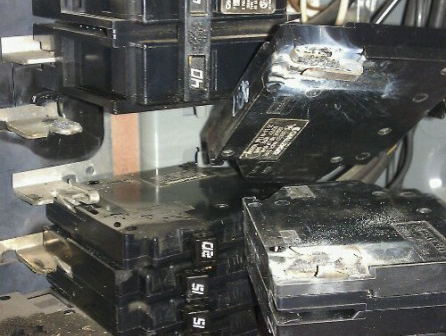What Tax Credits Are Available for Making Your Home Energy Efficient?
Millions of Americans are busy preparing their taxes (or at least thinking about it), but IRS codes and manuals can be difficult to understand, even by trained lawyers.
To make things more complicated, taxpayers must navigate the new set of laws enacted by the Tax Cuts and Jobs Act of 2017, which has undergone several revisions that go into effect this year.
One big change is that certain tax credits for residential energy efficiency have been extended retroactively, through December 31, 2020! That means that you can claim the nonbusiness energy property credit on your 2019 tax return for both 2018 and 2019 (as long as you meet the 2019 criteria).
With April 15th quickly approaching, homeowners are wondering about which federal tax credits are available for home improvements and alternative energy equipment. This tax season, let’s go over the tax breaks that may be available to people who have made home improvements in the last two years.
Residential Energy Credits
Renewable Energy Tax Credits
Under the Tax Cuts and Jobs Act of 2017, individuals were only able to claim an energy efficiency tax credit for solar systems. The other energy tax breaks expired in 2017. That changed when the Bipartisan Budget Act of 2018 passed, which extended the same sunsetting credit value for solar energy systems to fuel cells, small wind turbines, and geothermal heat pumps.
You may be able to claim a credit of 30% of the cost of qualified energy efficient property:
- Solar electric property
- Solar water heating property
- Small wind energy property
- Geothermal heat pump property
- Fuel cell property
According to the IRS, applicable percentages for this credit are:
- 30% for property placed in service after December 31, 2016 and before January 1, 2020.
- 26% for property placed in service after December 31, 2019 and before January 1, 2021.
- 22% for property placed in service after December 31, 2020 and before January 1, 2022.
Expires: December 31, 2021
Details: Existing homes, new construction, and second homes qualify, however, rentals do not.
Residential Energy Efficient Property Credit
New Energy Tax Breaks for 2018-2020
A new law — the Further Consolidated Appropriations Act — was passed in December 2019, which retroactively extends many (but not all) of the energy tax breaks that expired in 2017:
- Energy efficient homes
- Energy-efficient commercial buildings
- Nonbusiness energy property
- Qualified fuel cell vehicles
- Alternative fuel vehicle refueling property
- Energy tax incentives for biodiesel and renewable diesel, extended through 2022
If you didn’t claim a tax credit last year for any qualified energy improvement last year, you can claim the credit in this year’s tax return. You get a credit for 10% of the cost of qualified energy efficiency improvements, subject to the credit limit of $500.
Tax Credit: 10% of cost up to $500 or a specific amount from $50-$300.
Expires: December 31, 2020
Details: Must be an existing home & your principal residence. New construction and rentals do not apply.
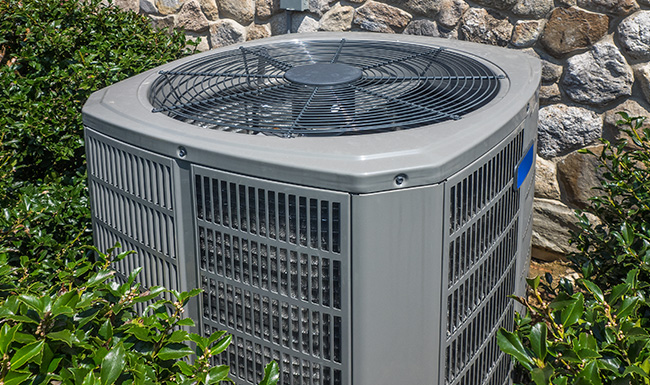 Air Source Heat Pumps
Air Source Heat Pumps
Heat pumps that are ENERGY STAR certified meet the requirements for this tax credit.
Tax Credit Amount: $300
Requirements
Split Systems:
- HSPF >= 8.5
- EER >= 12.5
- SEER >= 15
Package systems:
- HSPF >= 8
- EER >= 12
- SEER >= 14
More Information
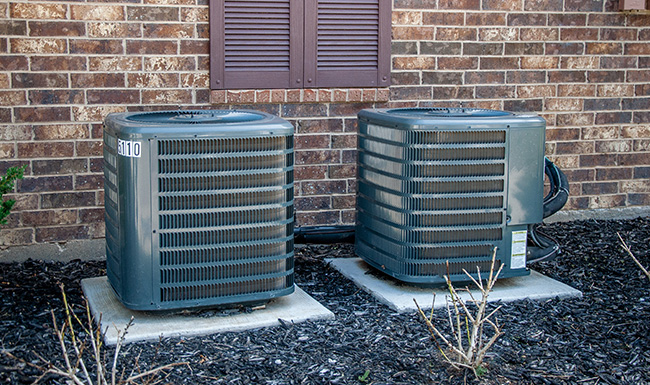 Central Air Conditioning (CAC)
Central Air Conditioning (CAC)
Air conditioners recognized as ENERGY STAR Most Efficient meet the requirements for this tax credit. To verify tax credit eligibility, ask your HVAC contractor to provide the Manufacturer Certification Statement for the equipment you plan to purchase.
Tax Credit Amount: $300
Requirements
Split Systems:
- SEER>= 16
- EER >= 13
Package systems:
- SEER >= 14
- EER >= 12
More Information
Gas, Propane, or Oil Hot Water Boiler
Gas powered boilers that are recognized as ENERGY STAR Most Efficient meet the requirements of this tax credit.
Tax Credit Amount: $150
Requirements
- AFUE >= 95
Tax credit includes installation costs.
More Information
Gas, Propane, or Oil Furnaces and Fans
Gas furnaces that are ENERGY STAR certified (except those for U.S. South only) meet the requirements for the furnace tax credit. Gas and oil furnaces that have earned the ENERGY STAR include fans that meet the requirements of the fan tax credit.
Tax Credit Amount: $150
Requirements
- AFUE >= 95
More Information
Water Heaters (Non-Solar)
Gas, Oil, Propane Water Heater
Certain ENERGY STAR certified gas water heaters meet the requirements for this tax credit. Water heaters account for 12% of the energy consumed in your home.
Tax Credit Amount: $300
Requirements
- Energy factor >= 0.82 OR a thermal efficiency of at least 90%.
More Information
Electric Heat Pump Water Heater
Most ENERGY STAR certified water heaters meet the requirements of this tax credit. Water heaters account for 12% of the energy consumed in your home.
Tax Credit Amount: $300
Requirements
- Energy factor >= 2.2
More Information
Advanced Main Air Circulating Fan
An Advanced Main Air Circulating Fan is an efficient fan, or blower motor which blows the air that your furnace heats up through the duct system.
Tax Credit Amount: $50
Requirements
- Must use no more than 2% of the furnace’s total energy.
More Information
Biomass Stoves
Biomass stoves burn biomass fuel to heat a home or heat water. Biomass fuel includes agricultural crops and trees, wood and wood waste and residues (including wood pellets), plants (including aquatic plants), grasses, residues, and fibers.
Tax Credit Amount: $300
Requirements
- Thermal efficiency rating of at least 75%
More Information
What Is NOT Included
The following energy efficiency improvements do not qualify for the tax credit:
- Insulation
- Roofs (Metal & Asphalt)
- Windows, Doors & Skylights
Source: ENERGY STAR
Generally, the tax credit for alternative energy equipment “terminates for property placed in service after December 31, 2021” (IRS).
Are roof improvements eligible for the credit?
While traditional roofing materials don’t qualify for the residential energy efficient tax credit, some solar roofing tiles and shingles may qualify.
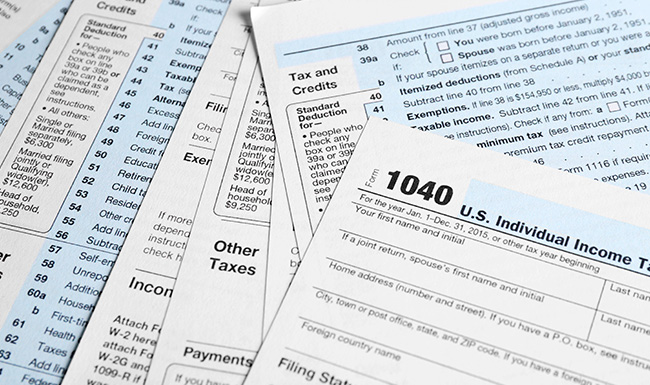 What IRS form do I use to claim the Residential Energy Credit?
What IRS form do I use to claim the Residential Energy Credit?
Use IRS Form 5695 to claim the residential energy tax credit.
- Form 5695 Instructions: https://www.irs.gov/pub/irs-pdf/i5695.pdfPDF Download
- Form 5695: https://www.irs.gov/pub/irs-pdf/f5695.pdf
Deductions for Landlords of Rental Properties
Any maintenance work on a property while the property is rented should continue to be tax deductible, providing that the work is not an “improvement.” Remember that a tax credit is more valuable than a deduction because a credit is dollar-for-dollar while a deduction is a percentage of the tax liability.
Some rental expenses that you can deduct on your taxes include:
- Losses from theft or casualty
- Property depreciation
- Repairs and maintenance
- Segmented depreciation
- Utilities
- Home office
- Real-estate related travel
- Closing costs
- Mortgage insurance
- Property management fees
- Rental property insurance and rent default insurance
- Mortgage interest
- Accounting, legal, and other professional fees
- Tenant screening
- Legal forms
- Property taxes
- Rental property licensing and registration fees
- Occupancy tax
- Business entity pass-through deduction
Are there any other financial incentives for making energy efficiency improvements?
While the federal tax credits for certain energy efficiency improvements are being phased out, there are still rebates and other financial incentives available.
- Plug in your zip code into the ENERGY STAR Rebate Finder to find rebates and special offers near you on specified ENERGY STAR products.
- Search the Database of State Incentives for Renewables and Efficiency (DSIRE) for programs and policies that support energy efficiency in your state.
- Find out if your state offers a sales tax holidayon energy-efficient home appliances.
The new tax code — the largest overhaul in the last 30 years — has affected nearly everyone. If you have questions about filing your taxes, contact the IRS.
For more information on energy efficiency tax credits, rebates, and savings, contact Brubaker Inc. We can help you sort through all the federal tax credits, local rebates, and offers that may be available to you.
Don’t forget, these credits are set to expire on December 31, 2021, so if you are planning on making energy efficiency improvements to your home, now is the time to do it!
Visit our showroom at 1284 Rohrerstown Road, Lancaster to see the latest in appliances and materials for your next home improvement project.
Since 1945, Brubaker Inc. has been serving Lancaster and the surrounding area. We are committed to making sure every customer comfortable and informed before making a decision to purchase.
Contact Brubaker Inc. at 717.299.5641 or email us for more information or when you are ready to start your home improvement project.
For service that exceeds expectations, contact the fast and reliable technicians at Brubaker, Inc. for your annual heating, cooling, plumbing, and electrical inspections. 24/7 emergency service is available to our valued customers in the Lancaster, PA area.


